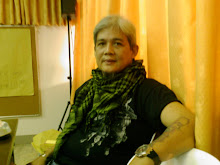The agricultural base of Philippine economy has stunted considerably as its potentials have obviously been ignored by our country’s leaders and economic planners. The normal course of development that runs from agriculture to agro-industrialization to industrialization has not been properly consummated because the country hastily barged into the periphery of industrialization and has since been frantically involved in the maintenance of an economy that is not fully industrial but can best be described as a semblance of industrialization, or perhaps it is simply “pseudo-industrial.” In the whole process, we have been fully dependent on foreign investments that have put up assembly plants and factories manufacturing spare parts whose raw materials are imported. The outputs of these plants are exported not really for the country to gain revenues but for the foreign investors to accumulate enormous profits.
What could have actually benefited the country economically is a comprehensive long-term program for agro-industrialization which would afterwards usher in authentic industrialization with a national character.
As an aftermath of our present tragedy, many of our fellow countrymen have become overseas contract workers (OCWs/OFWs). These are Filipinos who could not hack working locally and be paid a meager income in foreign-funded factories that have been benefiting from cheap labor. The OFW phenomenon has adversely affected the social fiber of the
In the local scene, exploited labor in foreign-funded factories has not raised the Filipino standard of economic life a bit higher. Poverty still dominates every nook and cranny of Philippine society. Amid this situation, the polarization of government in relation to the people is a reality as the former generally serves the interest of the exploiters and the latter struggle on a daily basis to make both ends meet. Most of the middle class, however, in our society have been seen on the side of the economic exploiters and in the process are, likewise, party to the further oppression of the poor segment of our society.
Even if the country is said to be benefiting from the technological inventions and innovations of the post-industrial era inaugurated by highly developed nations, we are still a poor nation. The trappings of development are actually witnessed only among the few who constitute the upper, upper-middle, middle and lower-middle classes in a lopsided economy where the distribution of the nation’s wealth is unequal.
In conclusion, I would like to believe that the situation of business organization in the
© Ruel F. Pepa
